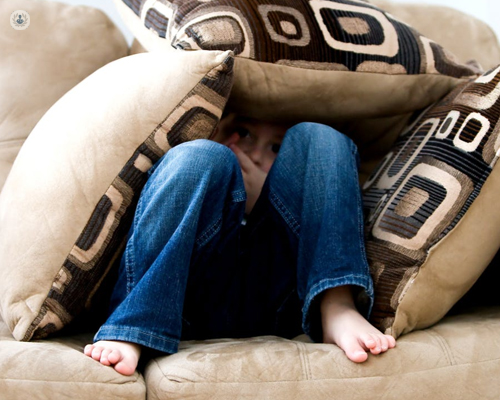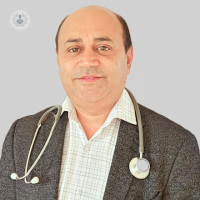How might undiagnosed ADHD affect children in their teenage years?
Written in association with:ADHD in children can be distressing for both the child and parents, as the condition can affect every aspect of a child’s life. In this article below, leading consultant neurodevelopmental paediatrician, Dr Rajendra Mahendrakar, outlines the most common known causes of ADHD in children, and tells us what could happen if ADHD is left untreated.

How common is ADHD in children?
ADHD affects about three to five per cent of children and two per cent of adults. It is more common in males than females.
The global prevalence of attention deficit hyperactivity disorder (ADHD) in children is estimated to be around five per cent, while studies based on US populations (where rates of diagnosis and treatment tend to be highest) estimate the rate at between eight and 10 per cent.
ADHD is more often diagnosed in boys than girls. Girls are more likely to have symptoms of inattentiveness only, and are less likely to show disruptive behaviour that makes ADHD symptoms more obvious. This means girls who have ADHD may not always be diagnosed.
What are the known causes of ADHD in children?
The exact cause of ADHD in children is not fully understood, although a combination of genetics and brain function and structure is thought to be responsible.
How is ADHD diagnosed in children?
There's no simple test to determine whether you or your child has ADHD, but a specialist can make an accurate diagnosis after a detailed assessment. Normally, the condition in children is diagnosed by a paediatrician. The health assessment of the child with suspected ADHD may include a thorough neurodevelopmental assessment, and interviews or reports from parents and teachers.
Diagnosing ADHD in children depends on a set of strict criteria. To be diagnosed with ADHD, your child must have six or more symptoms of inattentiveness, or six or more symptoms of hyperactivity and impulsiveness.
What might happen if ADHD is left undiagnosed in children?
These symptoms can cause significant problems in a child's life, such as underachievement at school, poor social interaction with other children and adults, and problems with discipline and self esteem.
What are the most common complications related to ADHD?
There are many ADHD-related complications that can affect a child with ADHD. These include:
- poor school or work performance
- unemployment
- financial problems
- trouble with the law
- alcohol or other substance misuse
- frequent car accidents or other accidents
- unstable relationships
- poor physical and mental health
How might undiagnosed ADHD affect children in their teenage years?
Teens with ADHD are more likely to engage in impulsive, risky behaviours, including substance use and unsafe sexual activity. Untreated ADHD can lead to mental health disorders like anxiety and depression. This is because ADHD symptoms can lead to focus, concentration, and impulsivity problems. When these problems are not managed effectively, they can lead to feelings of frustration, irritability, and low self-esteem.
What are the treatment options for ADHD in children?
ADHD can be treated using medicine or therapy, but a combination of both is often best.
To book an appointment with Dr Rajendra Mahendrakar, you can head on over to his Top Doctors profile to do so today.



